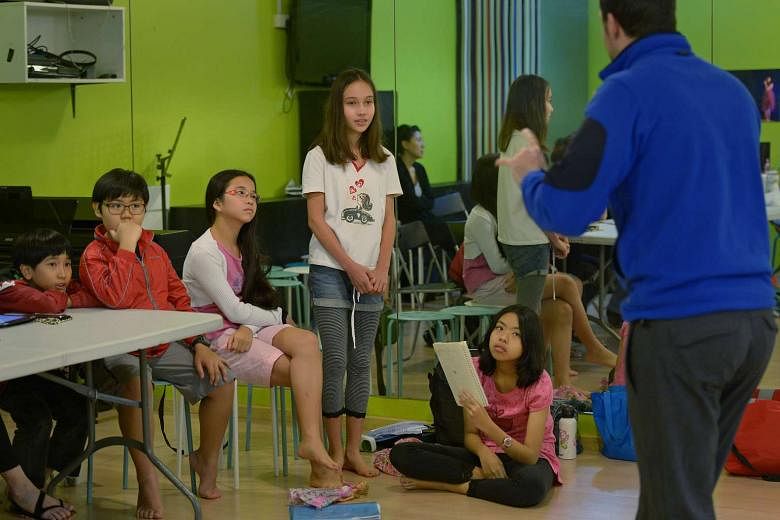The Ministry of Education (MOE) has rolled out a string of measures to encourage students to play to their strengths and tweaked admission criteria to make this possible.
The Direct School Admission (DSA) scheme, seen by many parents as an entry ticket to top schools, will be changed to reclaim its original purpose - to recognise and nurture a diversity of talent in students.
Aptitude-based admissions will be expanded for the Institute of Technical Education (ITE), polytechnics and universities.
Normal stream students in all eligible schools will be given the chance to study their stronger subjects at higher academic levels.

The changes were announced yesterday by Minister for Education (Schools) Ng Chee Meng and Minister for Education (Higher Education and Skills) Ong Ye Kung, who underlined a decisive shift across all levels of the system to focus on recognising a student's interest and aptitude in particular fields.

Mr Ng announced that, from this year, schools will discontinue the use of general academic ability tests to assess DSA applicants. Instead, they will consider talents in specific domains.
He also announced that, from next year, all secondary schools can set aside up to 20 per cent of their places for the DSA.
Currently those with MOE-approved niche programmes can reserve 5 per cent of their intake for the scheme.
Mr Ang Wei Neng (Jurong GRC) and Mr Edwin Tong (Marine Parade GRC) pointed out that, although the scheme was started in 2004 to broaden admission criteria beyond PSLE results, over the years, it has been used to get into premier schools that offer the Integrated Programme (IP).
Instead of being a pathway for students with talents in, for example, the arts and sports, it was being used by academically bright students to secure a Secondary 1 place even before they took the Primary School Leaving Examination.
Specialised independent schools and those offering the IP can continue to take in up to 100 per cent of their students via the DSA, although the MOE said IP schools on average take only 35 per cent of their students via the DSA scheme.
Mr Ng also announced changes for Normal stream students to help them build on their strengths.
From next year, Normal stream students will be able to take up subjects at a higher academic level from Secondary 1, instead of Sec 3.
"If they are good at something, we want to help them hone their strengths into deep knowledge and skills," said Mr Ng.
In a similar vein, Mr Ong announced the expansion of aptitude- based admission for ITE, polytechnics and universities "because we are simply better at doing something we like".
This year, some 15 per cent of the intake in universities will be aptitude-based. An early admission exercise will see a similar proportion of students securing a place in ITE, based on their strengths.
"Our post-secondary educational institutions today must have an additional mission - to uncover and develop diverse talents," said Mr Ong.
Mr Bertrand Lim, 42, who has two teenage sons, welcomed the expansion of aptitude-based admissions. He said: "No doubt, aptitude-based admissions will be messy to implement. But it will be well worth it if the school system can accommodate the interests and abilities of all children."
RELATED ARTICLES
- Polys, ITE to take in more students based on aptitude
- Taking EAE route to pursue passion in performing arts
- 20% of places in sec schools to be kept for students with no affiliation
- New diploma to help ITE grads take on larger roles
- Driven by passion to save horseshoe crabs
- What students and schools are up to these days
- Focus on sport, art or specific academic talent for direct entry
- Back to core objective - a chance for other talents to shine
- Scheme allows Normal stream students to take subjects at higher level
- Shorter waiting time for 1,000 new BTO flats
- Young couple can look forward to faster option
- More schemes to help elderly home buyers
- Punggol North to be 'enterprise district' with new urban concepts
- MyInfo to be expanded to banks, more services
- Means test: Household income 'still best gauge'
- SMEs to get more chances to participate in govt projects
- S'pore has strong fiscal safeguards in place: Indranee
- Will GST be raised by end of 2020?
- Plans to transform farms in S'pore
- Out of the box
- NParks taking steps to improve tree health
- Push to boost use of building technologies
- HDB help for vulnerable groups
- $5m fund for inter-agency productivity projects


